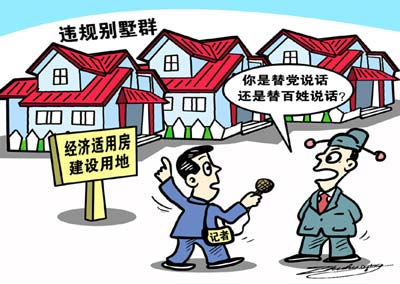
 |
71.3 percent of the respondents believe the extensive use of official jargon would reduce the masses’ trust on the government
Wang Jingbo, vice president of the Research Institute of Government by Law, China University of Political Science and Law, has been committed to the observation and study of the administrative culture of Chinese government.
She said that there are two reasons for the habit of speaking official jargon to have become an ingrained problem in the officialdom. First, there is a certain extent of bureaucratic style of work in the current officialdom. Many officials regard themselves as above the masses, and as such their words naturally should also be "superior" to the masses; Secondly, there are a universal phenomenon in the officialdom that "with non-action comes no faults", which is to say if a speech does not contain any substance and does not address any actual problem then nothing would go wrong and no responsibilities would have to be taken. Therefore, official jargon and empty words are more popular compared with telling the truth.
"The reason for the popularity of official jargon is that the current officials only speak to their superiors and not their subordinates. Since the common people do not have a say on the issues such as the appointment of officials, the officials do not have any spare time or effort, let alone of any motility, to speak a language which the common people can understand," said Wang Jingbo.
"The most serious consequence of the extensive use of official jargon is a bigger and bigger gap between the discourse system of the officials and that of the common people," Wang said. Good communication is a premise for the solution of many existing official-masses contradictions. But if the two sides do not even have any intersection in their respective discourse system, it would be impssible for them to communicate or form mutual trust, Wang said."
















 Snow hits capital of China, flights delayed
Snow hits capital of China, flights delayed


![]()
